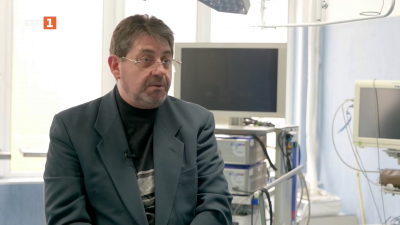It is important for Bulgaria to join the euro area in 2025, IMF Managing Director Kristalina Georgieva says
This is how we can improve the competitiveness of the Bulgarian economy

The exact date of Bulgaria’s joining the Eurozone is not as important as the accession itself and realistically this could happen in 2025, the Managing Director of the International Monetary Fund (IMF) Kristalina Georgieva said at a briefing in Sofia in response to a journalist’s question whether it is realistic Bulgaria to join the euro area on January 1, 2025.
"We know that joining the eurozone is a priority for Bulgaria, rightly so, because it is a way in which we can improve the competitiveness of the Bulgarian economy, reduce transaction costs in trade and in the financial sphere, for some sectors of the economy increase Bulgaria's attractiveness and make us more attractive for inward investment," Georgieva said.
In her words, everything is being done so that Bulgaria can meet all the indicators for Eurozone membership by the end of this year.
“In my opinion, there are good conditions for the country to meet them by the end of the year, which will mean that next year at some time it could be in the euro area,” Georgieva added.
"We recommend that the Bulgarian government be particularly careful about these instruments that are in their hands and affect price movements not just for eurozone entry but because, we all know, inflation is like a tax on people's incomes and it affects particularly badly poorer people here and everywhere in the world," the IMF Managing Director said.
Responding to a question on how the country's economy looks, Kristalina Georgieva said that Bulgaria looks good compared to the world.
"Bulgaria managed to keep growth in positive territory last year and this year. For this year, the forecasts are around 2.7%, she said, adding that more details on the subject would be available on March 19 at the conclusion of the IMF expert mission that is visiting Bulgaria. Meanwhile, inflation has also come down. We expect it to fall to below 4% by the end of the year, Georgieva said.
"Bulgaria is doing very well, except for inflation, which is not our problem, we did not create this inflation, Georgieva noted, adding that it came from two successive shocks - the pandemic, which hit the movement of goods and the functioning of the world economy, and the war in Ukraine, which for Europe, including Bulgaria, remains a significant factor, as it very strongly affected energy prices."
Source: BTA
Get the latest news wherever you are!
Follow us on
Facebook
and
Instagram
Follow BNT’s YouTube channel
You can now also watch us on
TikTok
Find us on
Google News























